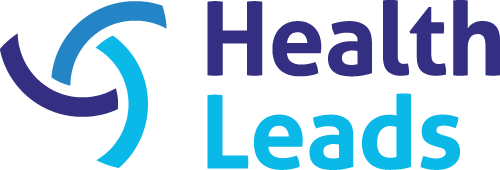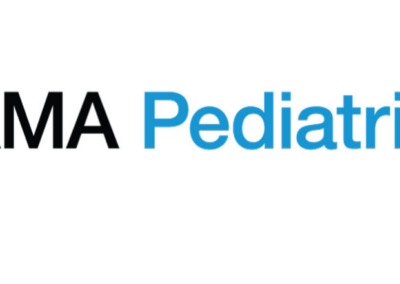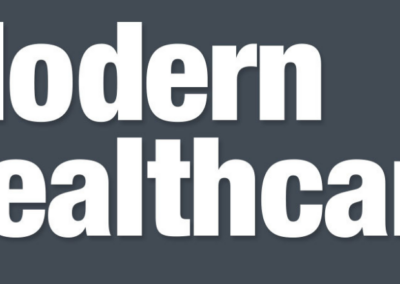Expect More, Not Less

By Rebecca Onie and Rocco Perla
Like so many, we have spent the past weeks considering the election and its implications for our country. The morning after the election, Dr. Tom Lee, Health Leads Board member, physician at Brigham and Women’s Hospital, Chief Medical Officer of Press Ganey, and the father of two former Health Leads advocates, shared this reflection:
The election showed the destructive impact of disparities in American society. The fact is that the life expectancy of the rich has always been greater than the poor, and the gap is widening. The difference was 8 years between the top quintile and bottom quintile in 1930, and it is 13 years today. And there has been essentially no change for the bottom two quintiles. So the bitterness is based on something real. Our work is more likely to solve those problems than a lot of the “policies” that were discussed during the campaign.
Dr. Lee’s words reinforce Health Leads’ commitment to 100% of people in this country – not just one half or the other. As we wrestle with how to do right by this commitment, two key themes have emerged. We share these as an invitation to join us in this conversation and a request to include us in yours. If anything is true, it’s that more learning and listening is required of all of us.
First, healthcare will be a moral crucible and political battleground for the next four years, but addressing patients’ unmet social needs will be a central driver of health reform. There are more questions than answers right now with respect to the future of healthcare, but a central driver of health reform is the economic pressure we face as a country that spends close to 20% of GDP on healthcare, yet lags behind other industrialized nations on health outcomes. Value, quality, and efficiency are bipartisan goals, even if there is disagreement about the mechanisms for achieving them.
Dr. Lee’s point above is most fundamentally about the economic disparities that influence health across this country. We know that approximately 60% of the modifiable factors that influence health are associated not with direct medical care, but the social and environmental determinants of health – like whether a patient has electricity to refrigerate her diabetes medication. It is inconceivable that sustainable health reform under either party’s leadership can occur without addressing 60% of the drivers of health and cost. As patients with unmet social needs are higher cost – regardless of whether they are insured – addressing these needs is implicated in nearly any version of a cost-effective health system.
Second, we have an obligation to make our values more explicit than ever before. In his 2012 Harvard Medical and Dental Schools commencement address, former Centers for Medicare and Medicaid Services Administrator Don Berwick spoke of the two duties of healthcare providers: The first is to bring the benefits of biomedical science to all who need it. “But that,” he explained, “is not enough. [There is] a further duty, one more subtle—but no less important. Maybe this second is not a duty that you meant to embrace; you may not welcome it. It is to cure, not only the killer leukemia; it is to cure the killer injustice.”
For many of us, the current context puts that which we value at enormous risk: a country strengthened by the many religions, nationalities, races, abilities, ethnicities, and life experiences that comprise it; a planet protected from degradation, with the knowledge that it is our only collective home; and the recognition that our country’s promised rights of “life, liberty, and pursuit of happiness” depend on a foundation of health—and therefore a healthcare system accessible to all. As never before, we all – not only graduating medical students and front-line healthcare providers – face an imperative to “cure the killer injustice” by making our values explicit and acting upon them.
We believe this imperative will make our work easier, not harder. As Health Leads Managing Principal and healthcare industry veteran Kelly Hall has reminded us:
“When providers come to grips with what disruption of the ACA will mean to their most vulnerable patients, they will feel morally and ethically obligated to step up to the challenge. I say that not as a starry-eyed dreamer, but as someone who has spent the majority of her career navigating the world of traditional health care delivery with all of its politics, distorted incentives, and challenges. As cynical as I can be about it – and believe me, I have had lots of opportunity to be cynical over the years – I’ve seen time and again that when push comes to shove, people fall back to why they went into health care in the first place, and they do the right thing.”
We are already witnessing healthcare providers and leaders stepping forward with powerful resolve and renewed conviction in pursuing a more rational, person-centered, equitable, and just healthcare system. Over the past year, a coalition of senior executives from over a dozen major health systems across the country has—without fully realizing it—prepared for this moment. With support from Health Leads, these leaders have articulated a shared vision of a healthcare system that, in partnership with communities, addresses patients’ basic unmet human needs as a standard part of quality care. With these health systems partners, we will continue to mobilize the sector to further our shared vision—with an unprecedented clarity of purpose and sense of the urgency and importance of this work.
In the grand foyer of the U.S. Department of Health and Human Services, Senator Hubert Humphrey’s words are inscribed:
The moral test of government is how that government treats those who are in the dawn of life, the children; those who are in the twilight of life, the elderly; and those who are in the shadows of life, the sick, the needy and the handicapped.
This moral test is not a political ideology, but an expression of our Constitution’s preamble committing to “establish justice, promote the general welfare and secure the blessings of liberty.” Every one of the 2.8 million federal employees takes an oath to do exactly that.
We at Health Leads likewise hold ourselves – and invite all of us to be – accountable to this moral test. We commit to the fierce pursuit of our vision, with the confidence that our current strategy is the right path to achieve it and the humility to know that our work will continue to evolve, as it always has, along with the sector itself. We bring powerful resolve to continue our work, with our many partners, in whatever circumstances we find ourselves.
Now is not the time to hunker down and expect less from our health system simply because there is political uncertainty and upheaval – we must now push harder than ever, most of all for those in the dawn, in the twilight, and in the shadows.
This post was written by Health Leads Founder and former Chief Executive Officer Rebecca Onie and former Health Leads President Rocco Perla.



